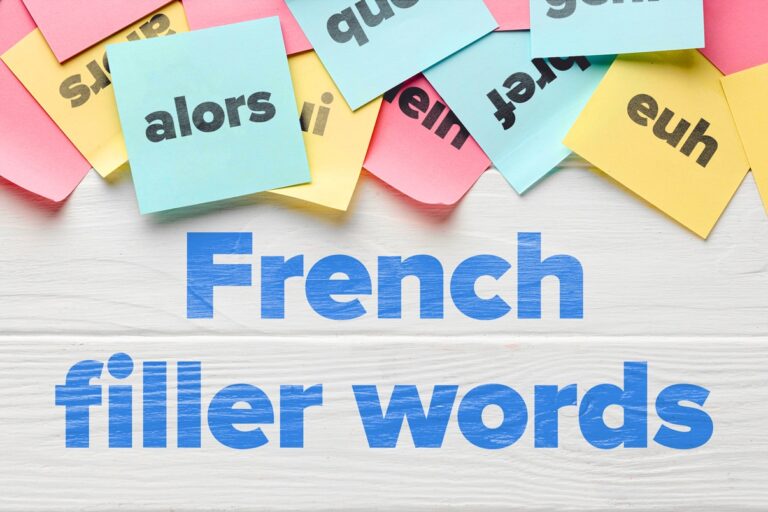Être vs. Avoir: How to Use These French Auxiliary Verbs

Être and avoir are perhaps the most commonly used French verbs–and they’re also infinitely useful in creating French’s compound verb tenses. It’s easy to confuse the two, though, as a French learner.
The battle is knowing when one is used over the other, and what specific rules govern their actions, and that’s what we’re going to cover in this post.
Download: This blog post is available as a convenient and portable PDF that you can take anywhere. Click here to get a copy. (Download)
Être and Avoir Overview
The verb être means “to be,” and it’s used for expressing identity and state. On the other hand, the verb avoir means “to have” and talks about possession.
Here are some examples:
Je suis fatigué.
(I am tired.)
Il est médecin.
(He is a doctor).
J’ai un chat.
(I have a cat.)
Nous avons une réunion.
(We have a meeting.)
Both être and avoir can also be combined with other “main” verbs to become auxiliary verbs:
Nous avons regardé un film. (We have watched a movie.)
Elle est allée au marché. (She went to the market.)
They create many of French’s compound tenses, like the perfect and future perfect tenses.
For this post, we’ll be focusing on être and avoir as auxiliaries. But before we get into that, let’s confront conjugation.
Conjugating Être and Avoir
These two verbs are pretty irregular, so you’ll have to memorize their basic conjugations.
How to Conjugate Être
Let’s start with être:
| Present Tense | Imperfect Tense | Simple Future Tense |
|---|---|---|
| Je suis (I am) | J'étais (I was) | Je serai (I will be) |
| Tu es (you are) | Tu étais (you were) | Tu seras (you will be) |
| Il/elle/on est (he/she/one is) | Il/elle/on était (he/she/one was) | Il/elle/on sera (he/she/one will be) |
| Nous sommes (we are) | Nous étions (we were) | Nous serons (we will be) |
| Vous êtes (you [plural/formal] are) | Vous étiez (you were) | Vous serez (you will be) |
| Ils/elles sont (they are) | Ils/elles étaient (they were) | Ils/elles seront (they will be) |
How to Conjugate Avoir
Now let’s check out the conjugations of avoir:
| Present Tense | Imperfect Tense | Simple Future Tense |
|---|---|---|
| J'ai (I have) | J'avais (I had) | J'aurai (I will have) |
| Tu as (you have) | Tu avais (you had) | Tu auras (you will have) |
| Il/elle/on a (he/she/one has) | Il/elle/on avait (he/she/one had) | Il/elle/on aura (he/she/one will have) |
| Nous avons (we have) | Nous avions (we had) | Nous aurons (we will be) |
| Vous avez (you have) | Vous aviez (you had) | Vous aurez (you will have) |
| Ils/elles ont (they have) | Ils/elles avaient (they had) | Ils/elles auront (they will have) |
While these aren’t all the verb tenses, these are pretty common ones.
The irregular past participles été (être) and eu (avoir) are used in the passé composé (past perfect), and both verbs take avoir as an auxiliary verb for compound tenses.
Être vs. Avoir as Auxiliary Verbs
Now, take a look below at how to create the passé composé for all the other French verbs using these two verbs as auxiliaries.
In compound verb tenses, both verbs come before the main verb (or the participle) and conjugate directly with the subject:
J’ai parlé. (I spoke.)
Nous sommes montés. (We climbed.)
There are very rigid rule-based situations where être must be used and others where avoir must be used, though, and no mixing is allowed.
When to Use Avoir as an Auxiliary
With the passé composé, almost all French verbs take avoir as an auxiliary, but there are a select few that take être.
All you need to know about using avoir as an auxiliary is that it’s the default.
When to Use Être as an Auxiliary
Verbs of the House
Verbs that take être are referred to as the DR MRS VANDERTRAMP verbs. DR MRS VANDERTRAMP is an acronym to help learners remember which verbs take être as their auxiliary. These are also sometimes called the “verbs of the house” (les verbes de la maison).
Check them out:
| French | English |
|---|---|
| Devenir | To become |
| Revenir | To come back |
| Monter | To climb |
| Rester | To stay |
| Sortir | To leave |
| Venir | To come |
| Aller | To go |
| Naître | To be born |
| Descendre | To descend |
| Entrer | To enter |
| Rentrer | To re-enter |
| Tomber | To fall |
| Retourner | To turn around |
| Arriver | To arrive / To come |
| Mourir | To die |
| Partir | To leave |
These verbs use être when there is no direct object and avoir when there is a direct object.
Reflexive Verbs
In addition to these verbs, reflexive verbs take être as their auxiliary (reflexive verbs have a se in their infinitive).
Here’s an example of a reflexive verb in the present and past tenses:
Je me réveille à 6 heures. (I wake up at 6 o’clock.)
Je me suis réveillé à 6 heures. (I woke up at 6 o’clock.)
You can see that the past tense conjugation uses être.
Usage for Different Tenses
Also know that our two verbs can be used as auxiliaries for many other verb tenses such as le plus-que-parfait (pluperfect), le conditionel passé (past conditional) and le futur antérieur (the future perfect). These auxiliaries follow the same general rules as the auxiliary rules for the passé composé.
Here’s a quick look for comparison:
J’avais parlé.
(I had spoken.)
J’aurais parlé.
(I would have spoken.)
J’aurai parlé.
(I will have spoken.)
Nous étions monté.
(We had climbed.)
Nous serions monté.
(We would have climbed.)
Nous serons monté.
(We will have climbed.)
Other Important Rules for French Auxiliary Verbs
Agreement with Être
When we use être as an auxiliary, the past participle must agree with the gender and number of the subject.
This means that an -e is added to past participles of feminine subjects and an -s is added to past participles of plural subjects. For subjects that are both feminine and plural, both -e and -s are added to the past participle:
Tu es allé à l’école. (You went to school.)
Elle est allée au magasin. (She went to the store.)
Nous sommes allés à la bibliothèque. (We went to the library.)
Elles sont allées aux toilettes. (They [feminine] went to the bathroom.)
Be careful, though! This agreement happens only with être and never with avoir.
Être and Avoir Auxiliaries with a Direct Object
Remember how we said that verbs take être when there is no direct object present? Well, what happens if a DR MRS VANDERTRAMP verb does have a direct object present?
In that case, the verb takes avoir as an auxiliary verb:
Je suis descendu. (I went down.)
J’ai descendu le livre. (I took the book downstairs.)
In this case, the first sentence uses être because there is no direct object, but in the second case, because le livre is following the verb, this DR MRS VANDERTRAMP has to take avoir as an auxiliary. Seems simple, right?
Well, what happens if a reflexive verb has a direct object? In a classic case of French rule exceptions, the auxiliary for these verbs will still be être, but no agreement will be made on the past participle.
La fille s’est brossée. (The girl brushed herself).
La fille s’est brossé les cheveux. (The girl brushed her hair.)
Non-Auxiliary Uses of Être and Avoir
There are specific uses and rules for être. For example, when être is used to talk about one’s profession, no article precedes the following noun:
Il est avocat. (He is a lawyer.)
Nous sommes étudiants. (We are students.)
Further, when être is used as a linking verb (followed by an adjective), the adjective that follows must agree in gender and in number with the subject. Like with the passé composé, an -e is added for feminine, an -s added for plural and an -es added for feminine, plural.
Je suis content. (I am happy.)
Elle est contente. (She is happy.)
Nous sommes contents. (We are happy.)
Elles sont contentes. (They [feminine] are happy.)
Keep in mind, however, that these are just simple adjectives. There are loads of other adjectives that don’t follow this rule, but change differently according to the gender and number of the subject.
Avoir is used in a number of idiomatic expressions. For example, avoir can be used to talk about age, hunger and thirst.
J’ai 16 ans. (I’m 16 years old.)
Il a faim. (He is hungry.)
Vous avez soif ? (Are you thirsty?)
Further, the fixed expression il y a means “there is/there are,” but it uses avoir.
Il y a un livre sur la table. (There is a book on the table.)
Il y a la police à l’école. (There are police at the school.)
You can check out more expressions with avoir here:
Resources for Practicing Être vs. Avoir
Feel like you got a hold on when to use être and when to use avoir?
You can use the following resources to practice conjugating être and avoir in different tenses:
Start with ToLearnFrench and ProProfs for a simple conjugation quiz.
Next, try AllTheTests for an être-only quiz and Lingolia for a quiz that combines the present tense and the passé composé.
This is all a lot to memorize, so keep in mind that what will really cement these conjugations in your mind is practice and exposure to them in some actual context. FluentU could help with this.
FluentU takes authentic videos—like music videos, movie trailers, news and inspiring talks—and turns them into personalized language learning lessons.
You can try FluentU for free for 2 weeks. Check out the website or download the iOS app or Android app.
P.S. Click here to take advantage of our current sale! (Expires at the end of this month.)
Pretty soon, it’ll seem like the battle between être and avoir is no battle at all!
These two superverbs are used all the time, so it’s critical to know exactly when and how to use them.
And that knowledge will certainly come with time and practice, so keep up your diligent studies. After all, there are plenty of other French verbs to learn and master too!
Download: This blog post is available as a convenient and portable PDF that you can take anywhere. Click here to get a copy. (Download)
And One More Thing...
If you like learning French at your own pace and from the comfort of your device, I have to tell you about FluentU.
FluentU makes it easier (and way more fun) to learn French by making real content like movies and series accessible to learners. You can check out FluentU's curated video library, or bring our learning tools directly to Netflix or YouTube with the FluentU Chrome extension.
One of the features I find most helpful is the interactive captions—you can tap on any word to see its meaning, an image, pronunciation, and other examples from different contexts. It’s a great way to pick up French vocab without having to pause and look things up separately.
FluentU also helps reinforce what you’ve learned with personalized quizzes. You can swipe through extra examples and complete engaging exercises that adapt to your progress. You'll get extra practice with the words you find more challenging and even be reminded you when it’s time to review!
You can use FluentU on your computer, tablet, or phone with our app for Apple or Android devices. Click here to take advantage of our current sale! (Expires at the end of this month.)











